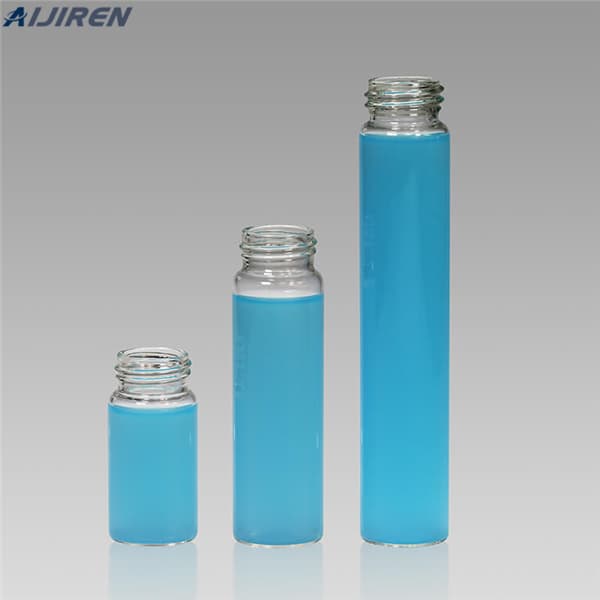Septa vials with all the essentials and none of the frills. Thermo Scientific™ Economy Certified VOA Vials with 0.125″ Septa are designed for water sample collection for volatile organic analysis (VOA). You get our standard 40mL VOA vials, processed and Certified to meet EPA Performance Based Specifications for Volatile Organic Analysis. Certificate of analysis included in each case.
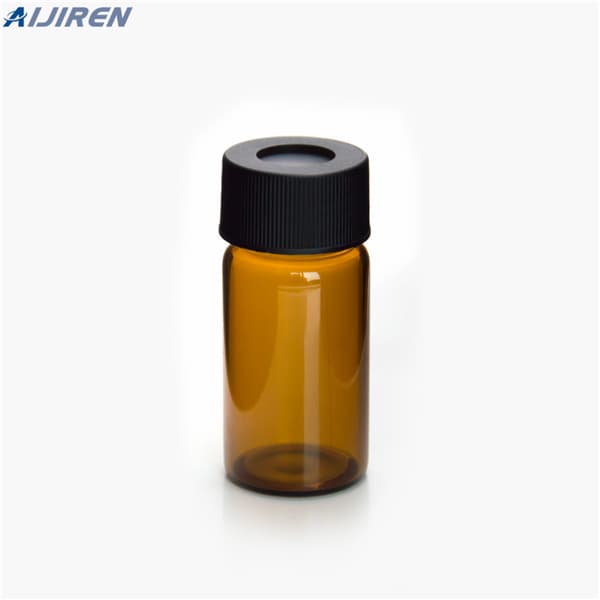
Permanent marker labeling sample bottles 40 Milliliter VOA Vials (Optional Item) for Color-Tec analysis and split samples Performance of the Color-Tec method requires the use of two standard, unpreserved VOA vials per sample. These VOA vials are not included in the standard expendables kits, but may be added as an option.

Water samples for volatile analysis are typically collected in 40 mL glass jars with septum-sealed screw caps and preserved with hydrochloric acid (HCl) to a pH less than 2. During sample collection, the screw caps should be carefully placed on the jars and sealed with zero headspace.
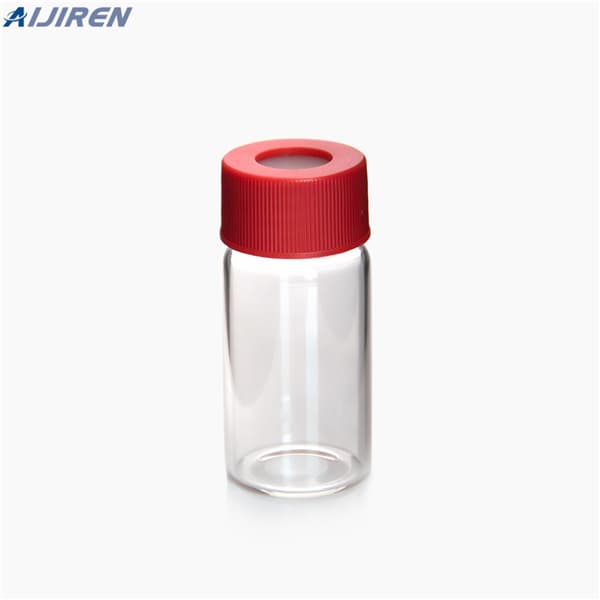
Conduct EPA Volatile Organic Analysis (VOA) analysis using Thermo Scientific™ Narrow-Mouth Closed Top VOA Bottles. Narrow mouth glass bottle with closed cap is designed for VOA testing where a pierceable closure is not required.

Volatile Organics EPA 524.2 {4} 14 days, preserved: Glass VOA vial {1} (sample in triplicate) HCl pH <2 + 0-6°C: 40mL: Volatile Organics EPA 624.1 {3} (Includes Acrolein and Acrylonitrile) 14 days except: 3 days unpreserved for Acrolein {12} 7 days unpreserved for BTEX only {11} Total of four 40 mL VOA Vials; Two Pres w/ HCl, Two Unpreserved {1} See full list on caltestlabs.com
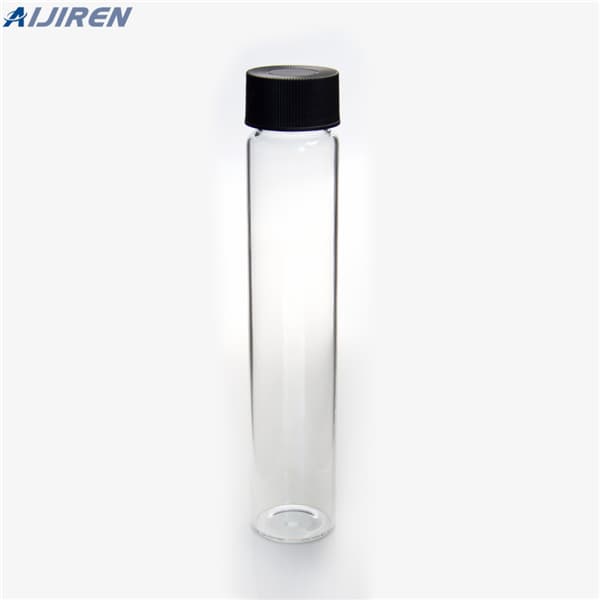
1 The term “volatile organic compounds” refers to low molecular weight compounds which possess boiling points below 200oC, are insoluble or slightly soluble in water, and have been traditionally analyzed by purge-and-trap methods. 1 USACE Sample Collection and Preparation Strategies for Volatile Organic Compounds in Solids (October 1998) Scope:
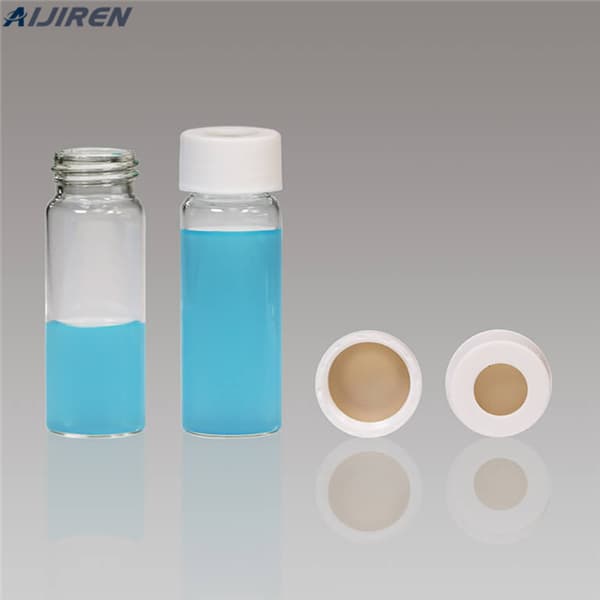
STORAGE REQUIREMENTS: Samples must arrive at laboratory on ice OR be stored at ≤ 6°C. VOA Vial - Volatile Organic Analyte (4 0 mL screw-top vial), HDPE - High Density Polyethylene WET CHEMISTRY AQUEOUS Guide to Holding Times, Containers, and Preservatives SOIL Abbreviations:
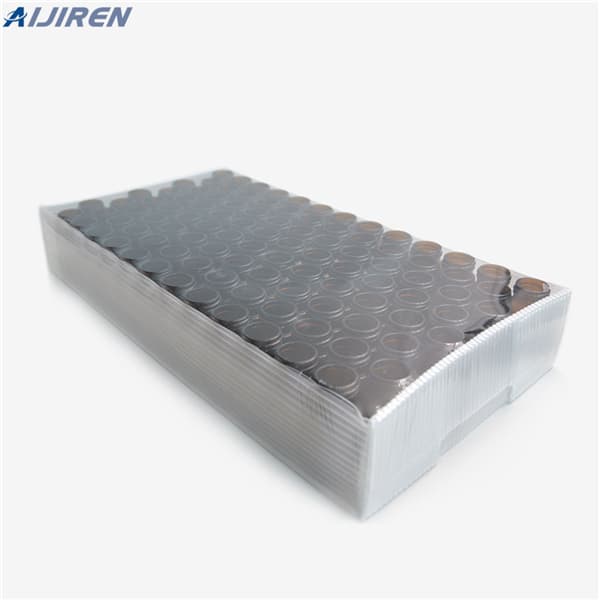
1) Soil samples should be directly into VOA vials. This is consistent with Methods 5035 and 5035A, and with NWTPH-Gx. 2) If samples are collected in containers other than VOA vials, then these samples must be analyzed or subsampled within 48 hours into VOA vials and appropriately preserved (methanol, freezing, etc. ) until the time of analysis.

REGARDING THESE INSTRUCTIONS PLEASE CALL THE STATE PUBLIC HEALTH LABORATORY AT 573-751-3334 AND ASK FOR THE CHEMISTRY UNIT. NOTE: Sample vials contain ascorbic and maleic acids when shipped for sample collection. 1) Collect and ship samples early in the week to avoid samples being unrefrigerated over weekend. VOC samples have a 14-day holding time.
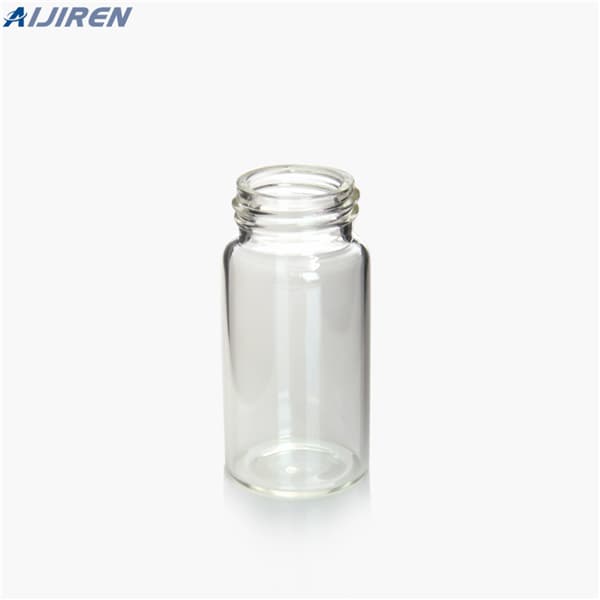
collection and preservation of volatile organic compounds (VOCs) within soil and solid waste samples to be analyzed at a stationary, off-site laboratory. Pre-sampling planning is emphasized as essential for meeting sampling objectives. Method 5035A contains critical information on sampling and analytical requirements and thus should be
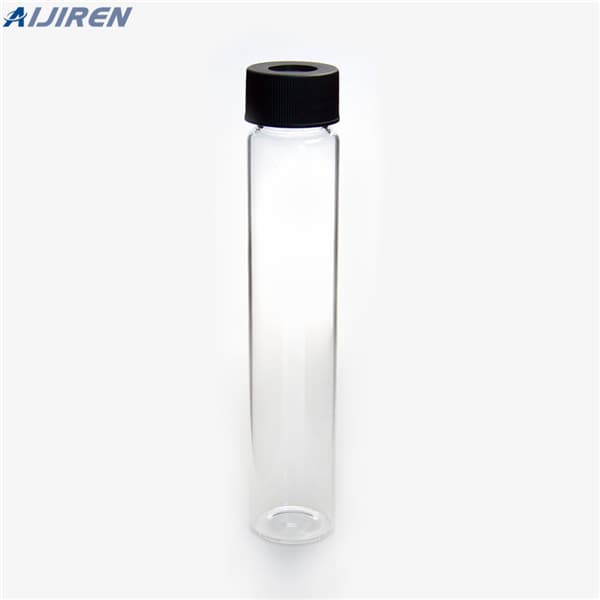
Samples for TPH-V analysis will only be accepted from the Indiana State Department of Health and other government agencies. Contact: Mark Starzynski 317-921-5580 for sample containers and instructions. Sampling Materials Sample Containers -- 40ml screw cap vials each equipped with a PTFE-faced silicon septum. Procedural Notes For Water Samples:
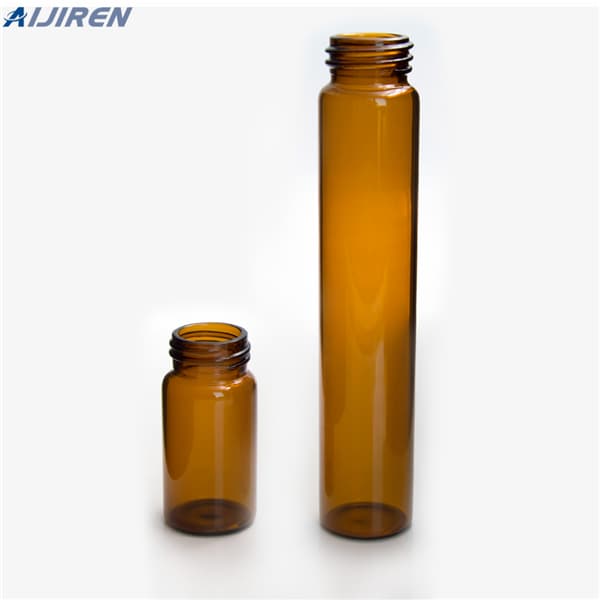
containers provide safe storage and transport of ß-emitting samples. The storage containers hold most test tube racks, small bottles, vials, and containers. The IBI storage containers make transport from bench to bench easy while protecting the user and lab from radiation. The containers

the septum of the vial to withdraw the sample. - For larger analysis volumes, (e.g. purge-and-trap analyses) the sample may be carefully poured into the syringe barrel. Opening a volatile sample to pour a sample into a syringe destroys the validity of the sample for future analysis. Therefore, if
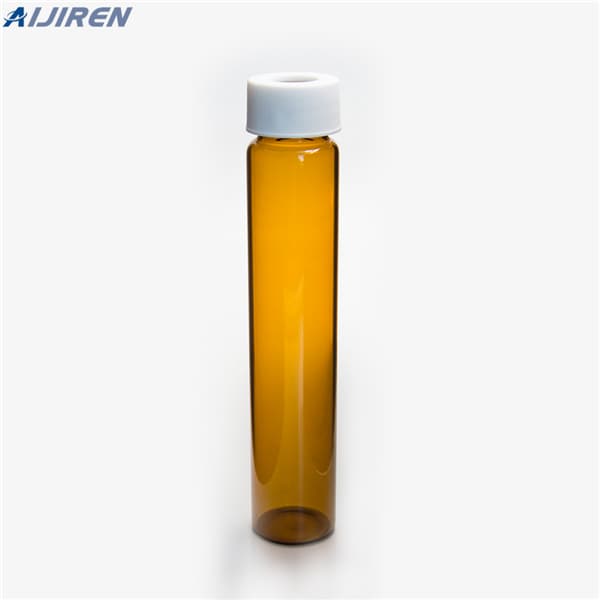
Sampling for Volatile Organic Compounds in Soil by EPA Method 5035/5035A Methods 5035 and the more recent 5035A outline procedures for sample collection and analysis of soils and solid wastes for volatile organic compounds (VOCs). The original method was published in Up-date III to the Third Edition of SW-846, “Test Meth-
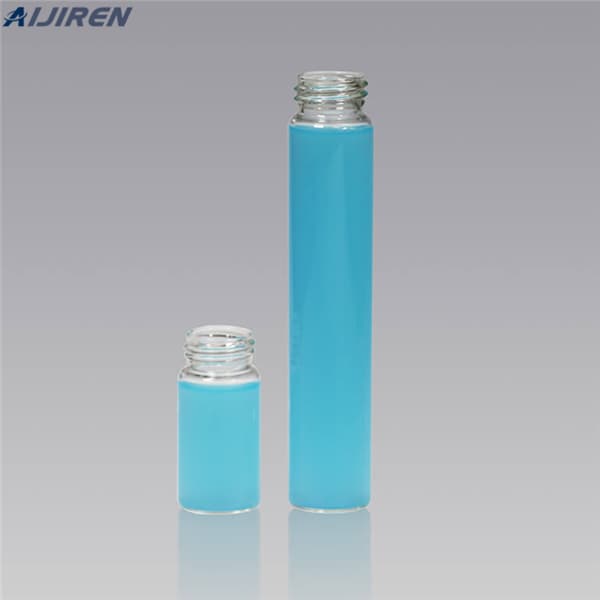
Headspace gas chromatography (GC) is one of the most common methods for identifying polymer VOC levels. Headspace GC separates the VOCs for analysis by heating the sample material in a vial, thereby increasing the polymer’s emission rate, then collecting the headspace gas from the vial.
